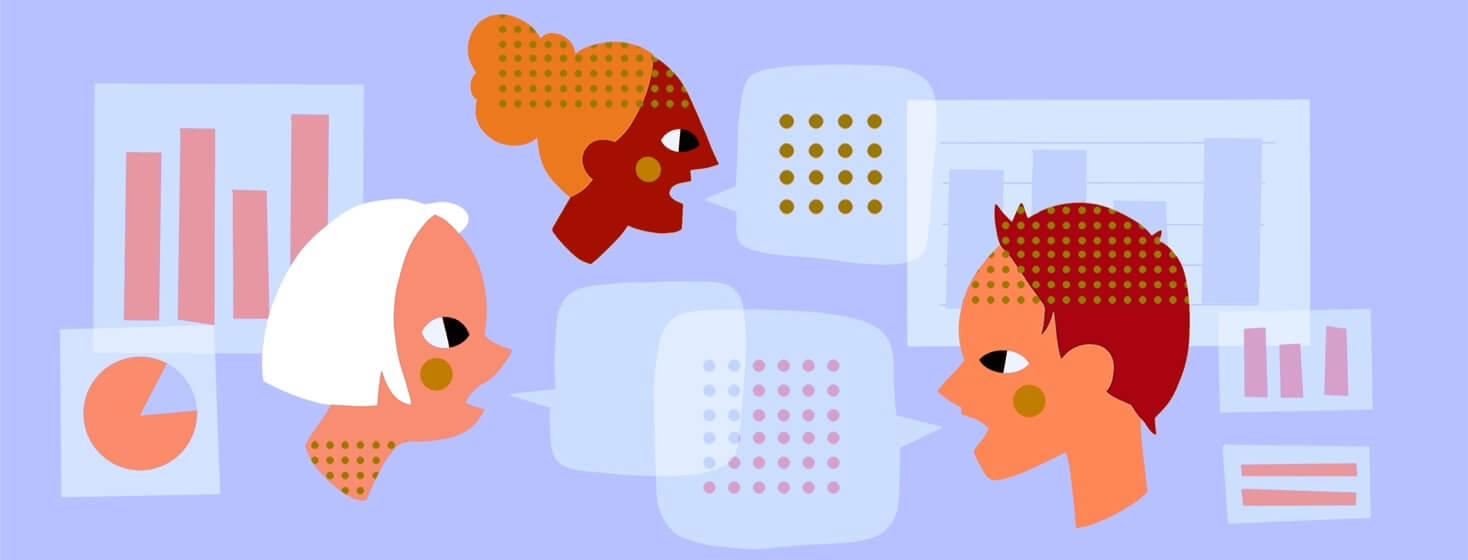A Day in the Life of a Sickle Cell Advocate: Educating Others
Thanks to my sickle cell advocacy work, I have conversations with people all over the world. To see the differences among countries, patients, and doctors is so beautiful. I would love to share one of my most memorable conversations with you.
My conversation with a nurse
For a project I was working on, I came into contact with a nurse who claimed to have sickle cell disease. I made an appointment with her, and we talked for over an hour about what it's like to have sickle cell disease; how she, as a nurse, treats patients who have sickle cell disease; and why it is important to know that you have sickle cell disease. I could relate to many things she said, especially when it comes to respecting patients.
Something felt off
But there were a few things that made me wonder, "How can a nurse make such a statement?" One of the things she mentioned was, "Sickle cell disease is an insidious disease. Sometimes it only comes when you're older!"
So I told her that was not true and I explained why. But she insisted that it is and that she is talking from her own experience. The unfortunate thing was that she was not open to my corrective attitude when she said things that were not true.
Sickle cell disease is a hereditary disease
Too bad, because I wanted to use her for a project since she is multilingual, and this language is quite difficult. So it could have been a beautiful collaboration for her, the hematologist, and me. We finally had someone who could help us communicate with the target audience. Sickle cell disease is a hereditary disease and certainly not an insidious disease. Sickle cell disease occurs when both parents are born with it.
As a nurse with sickle cell disease, I think she should know that. After my talk with her, I called the hematologist and shared my report along with my concerns.
The hematologist invited her to the hospital and called me after a few days with the result. The nurse did not have sickle cell disease. She was AS; she is a carrier. So my first reaction was, "Why does a nurse say she has sickle cell disease when she's a carrier?" That nurse thought all her life that she had the disease. The hematologist then explained the difference between carrier status and sickle cell disease to her.
Sickle cell disease is not the same as sickle cell trait
As a sickle cell advocate, I realize even more than a nurse who has quite a bit of medical background but doesn't know the difference between AS and SS. How can we expect this from someone who has no medical knowledge? It is our responsibility to educate the target group so that we can make a sustainable contribution to both sickle cell patients and the direct and indirect environment.
Now everything kind of fell into place. That nurse said that sickle cell disease is an insidious disease. She was 17 years old when she discovered she had "sickle cell disease." It turned out now (15 years later) that she does not have sickle cell disease but that she is a sickle cell carrier. Thanks to this story, the hematologist and I are now busy with an information day around June 19th so that we can provide the right information to everyone who needs.
Educating people about sickle cell disease
We should not automatically assume that people with a medical background know the difference between AS and SS. We should also explain the difference to them. And even better, we also have to explain to them why sickle cell disease is a hereditary disease, and that you can't get it later in life.
Every day we are confronted with so many beautiful and less beautiful stories from adults. This helps us do our job even better. Because thanks to all the input from the adult warriors, we can help others and provide them with the right information.
Tips for fellow sickle cell advocates
To my fellow advocates who also work with adult warriors, always take a few important things with you:
- Always work with a medical specialist so that you can send the warriors to someone if there are red flags or medically related questions.
- Don't automatically assume that someone with a medical background knows everything about sickle cell disease.
- Make sure that you convey the correct information in a good way without hurting anyone if you notice that someone is making mistakes or not understanding things.
- The word "hereditary" sometimes makes sickle cell disease even more difficult to understand. Not everyone understands how genetics works and that makes sense. So make sure you explain it in an easy way if necessary.
- Ask questions if you don't understand something because we as sickle advocates don't understand everything either.

Join the conversation